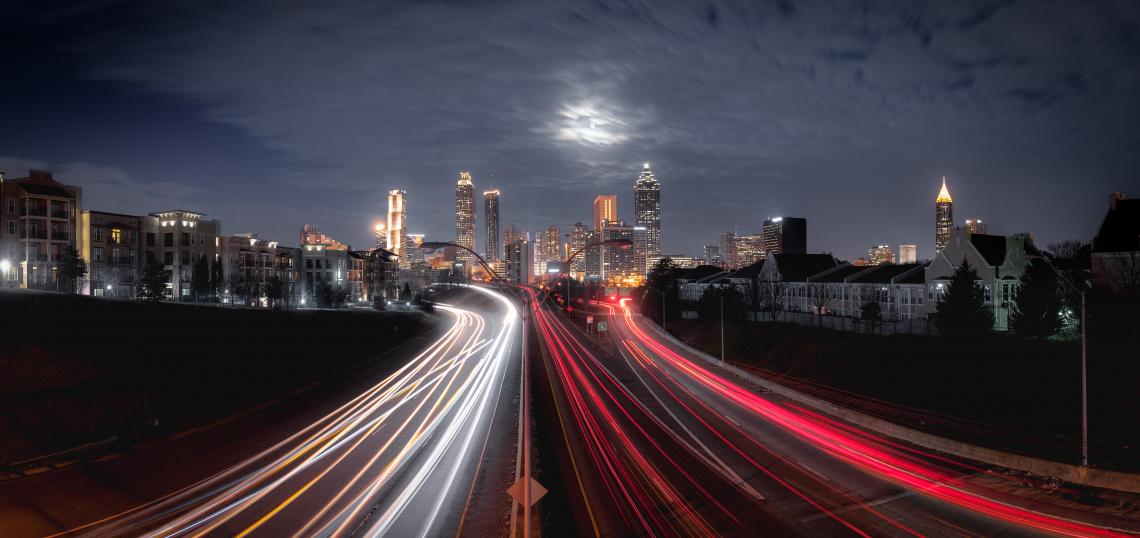As countless pandemic-era media reports have made clear—including a front-page Sunday AJC story that painted ITP Atlanta as a crime-ridden hellscape, via harrowing accounts from a handful of residents—public safety is at the forefront of Atlantans’ minds, as with denizens of most American cities.
One means of combating the uptick in crime across most categories, as studies have found, is to literally shine more light on the city at night.
To help accomplish that, the Atlanta City Council unanimously authorized a partnership with Georgia Power last week to tally, upgrade, and expand the city’s footprint of streetlights.
The work is being paid for via the Atlanta Department of Transportation’s budget, at a maximum cost of $2 million in the first year of the agreement, with the option to renew if needed.
The agreement, per city officials, is expected to eventually produce 10,000 more streetlights across Atlanta.
In November, Post 3 at-large councilmember Andre Dickens, also a candidate for mayor, introduced legislation aimed at developing a street-lighting plan to enhance safety in Atlanta neighborhoods. The logic went that adding more streetlights would be a relatively low-risk and high-return initiative.
A study resulting from that legislation—conducted by Georgia Tech, Georgia Power, and City of Atlanta officials—showed a correlation between dark streets and crime, and also traffic crashes.
The city council previously authorized a study with Georgia power to pinpoint the location and quality of streetlights in Atlanta, and what would need to happen to improve the network. (Previous counts of roughly 50,000 streetlights throughout the city were thought to be inaccurate, according to the November legislation.)
Earlier this year, Mayor Keisha Lance Bottoms announced the initiative called “One Atlanta-Light Up the Night” that aims to swell the city’s total streetlights by 10,000, focusing on areas experiencing higher rates of both car crashes and crime.
Following the council’s approval of the Georgia Power partnership, the utility company is expected to move forward in two phases. The first would see Georgia Power acquire about 9,300 of the city’s public lights and upgrade them to LED technology
Next, the power company would install thousands of LED light fixtures at “mutually acceptable locations” throughout the city, per the approved legislation.
“Safety comes in many forms, and for me, it starts with the ability to see our surroundings,” Dickens noted in a city-issued press release, following the council’s vote. “Our communities have been in the dark for too long, and crime has been lurking in these shadows. After authoring legislation to study just how in the dark our city really was… we are one step closer to illuminating our streets.”
• City council approves $3.5M to help address Atlanta homelessness (Urbanize Atlanta)






